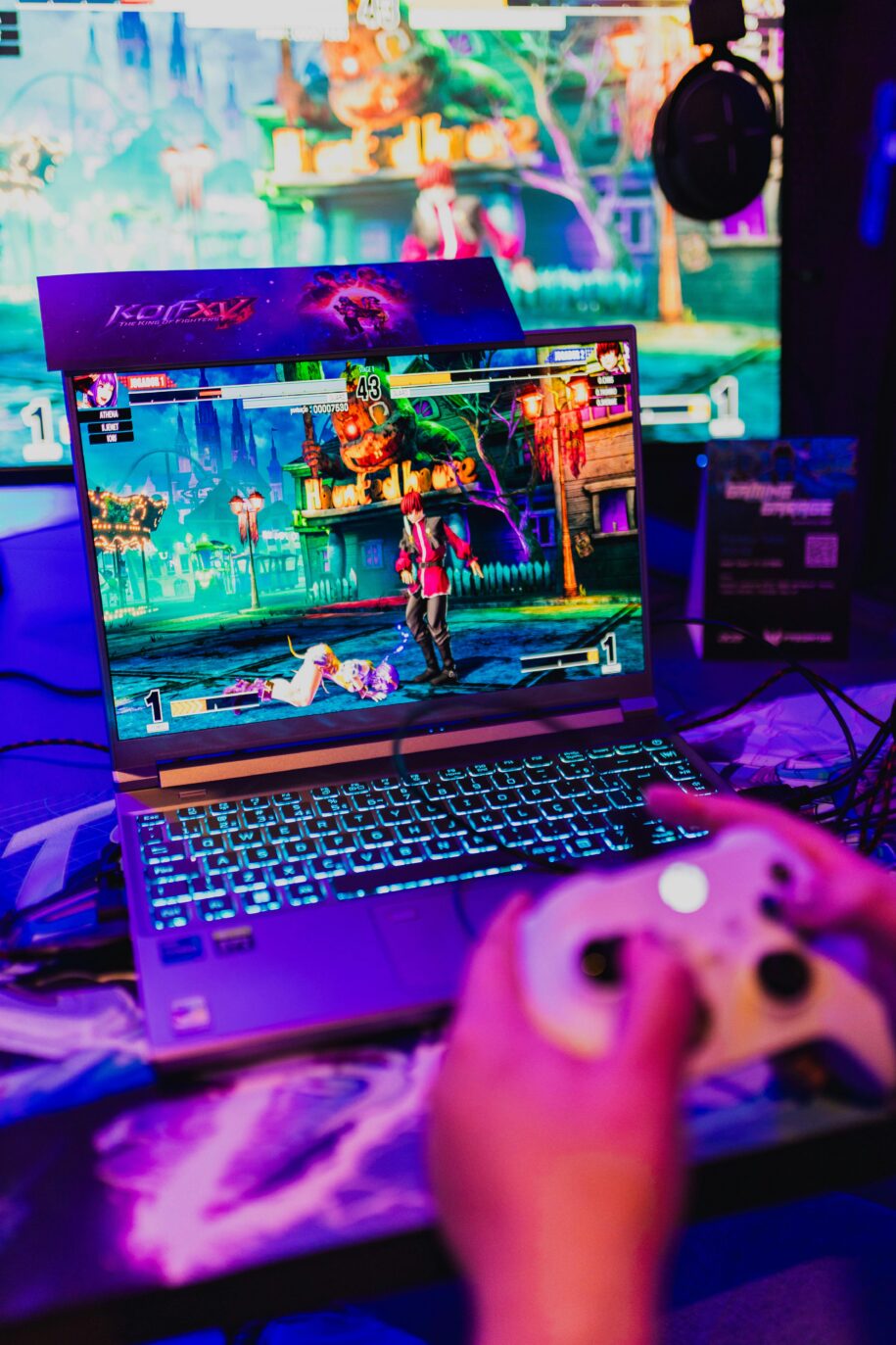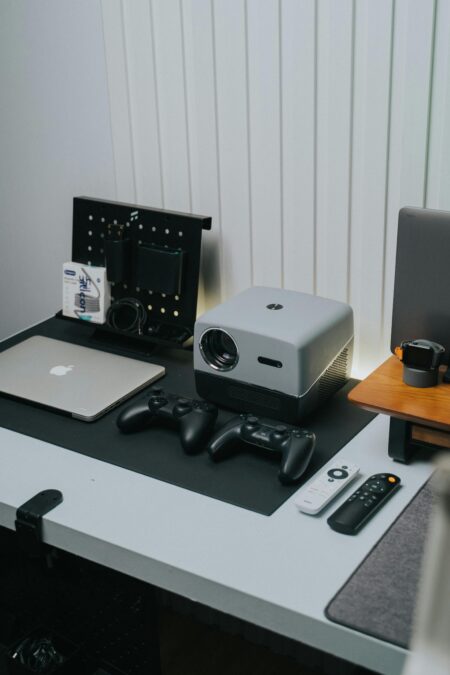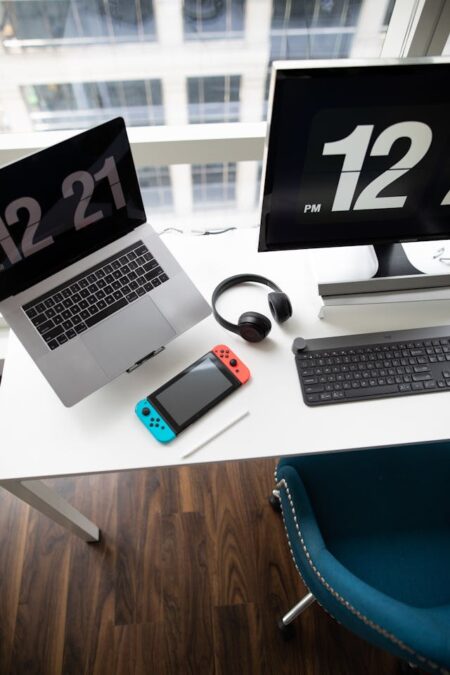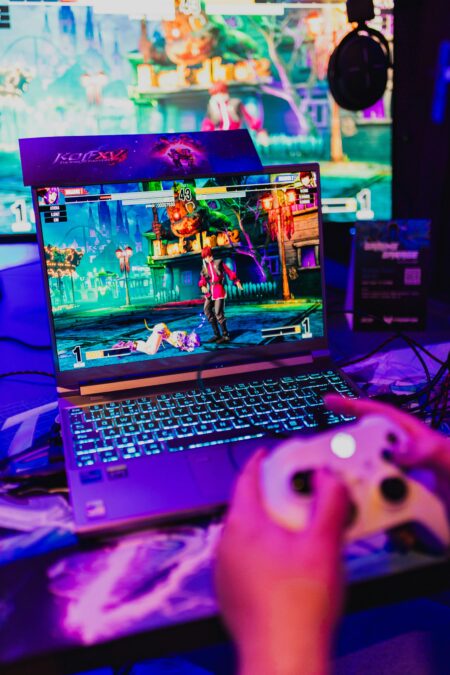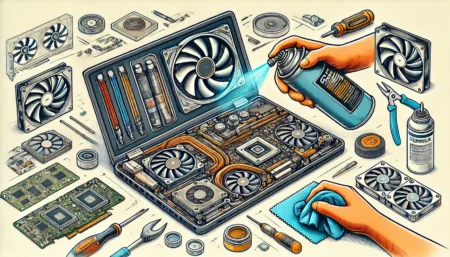///Gaming laptops are an exciting piece of technology. They pack potent components into a portable form, allowing users to enjoy high-quality gaming experiences. However, as with any electronic device, their lifespan is crucial, particularly given the investment involved. Whether buying a gaming laptop for the first time or considering upgrading, understanding how long gaming laptops last can help you make informed decisions about their worth. In this article, we’ll break down the factors that determine the lifespan of a gaming laptop, discuss what you can do to extend it, and explore how long you can realistically expect a gaming laptop to stay relevant.
| Feature | Average Lifespan | Notes |
| CPU & GPU | 5-6 years | High-quality components can last longer |
| Cooling System | Ongoing with maintenance | Regular cleaning ensures better heat management |
| Battery | 2-3 years | Battery capacity decreases over time |
| Storage (SSD/HDD) | 4-6 years | SSDs are faster and more durable than HDDs |
| RAM | 4-6 years | Upgradeable in some gaming laptops |
| Gaming Relevance | 3-4 years | May need to lower settings for newer games |
Average Lifespan of a Gaming Laptop last
The lifespan of a gaming laptop can be broken down into two key aspects: hardware longevity and relevance for gaming. Generally, the physical components of a gaming laptop can last anywhere from 4 to 6 years with good maintenance. However, when it comes to keeping up with the latest games at optimal settings, gaming laptops may lose their edge after 3 to 4 years. Let’s explore these two aspects in more detail.
- Hardware Longevity
The hardware durability of gaming laptops largely depends on the quality of components, the materials used, and how well they are taken care of. Most gaming laptops are built with high-performance CPUs, GPUs, and fast storage options designed to handle demanding games and applications. Here are the key factors that impact hardware longevity:
- CPU and GPU: The processor (CPU) and graphics card (GPU) are the most critical components in a gaming laptop. High-quality CPUs and GPUs, like Intel Core i7 or AMD Ryzen 7 and NVIDIA GTX or RTX graphics cards, are built to perform well for several years. With moderate gaming and careful usage, the CPU and GPU can typically last 5 to 6 years before showing signs of wear.
- Cooling System: One of the biggest enemies of any laptop is heat. Gaming laptops are especially vulnerable because their powerful CPUs and GPUs generate heat. If the cooling system isn’t adequate or if the computer isn’t maintained correctly (e.g., not cleaning out dust), overheating can cause the components to degrade faster. A well-maintained cooling system can help extend the overall lifespan of a gaming laptop.
- Battery: Laptop batteries are usually the first component to degrade. Most gaming laptop batteries lose capacity after about 2 to 3 years. While the battery isn’t as crucial for a gaming laptop’s core functions (since they are often plugged in during gaming), the declining battery life can impact portability.
- Storage and RAM: The SSD (Solid State Drive) and RAM (Random Access Memory) in gaming laptops also tend to last 4 to 6 years, depending on the quality and usage. Fortunately, many gaming laptops come with upgradeable storage and RAM, allowing users to extend their lifespan by upgrading these components.
- Relevance for Gaming
Another way to measure the lifespan of a gaming laptop is how long it can handle the latest games. Gaming technology advances rapidly, and newer games are increasingly more demanding. Here are the stages of gaming relevance that a gaming laptop can go through:
- Year 1-2: In the first couple of years, a gaming laptop with a powerful GPU like the NVIDIA RTX 3070 or AMD RX 6800 can run almost any modern game at high or ultra settings, with smooth frame rates. The laptop is still very relevant and performs at its peak during this time.
- Year 3-4: After 3 to 4 years, the computer may struggle with the latest AAA games at maximum settings. This doesn’t mean the computer becomes obsolete; users may need to lower the graphics settings to achieve playable frame rates. The laptop can still handle most games at this stage but may struggle with newer technologies like ray tracing or more intensive 4K gaming.
- Year 5-6: By the time the laptop reaches 5 to 6 years, it may be incapable of running the newest games smoothly, even at lower settings. Indie games or less demanding titles will likely still run well, but the latest graphically intensive AAA games require significant compromises.
Factors That Affect the Lifespan of a Gaming Laptop
Several factors influence how long your gaming laptop will last, both in terms of hardware health and its ability to handle modern games:
- Component Quality: The initial quality of components plays a significant role in determining a laptop’s lifespan. High-end gaming laptops are built with better-quality components than budget gaming laptops, contributing to a longer lifespan.
- Usage: How you use your gaming laptop is critical to how long it will last. If you’re using it for extended gaming sessions at maximum performance every day, it will degrade faster compared to someone who uses it moderately. Proper usage habits, such as limiting overheating and not pushing the laptop to its limits constantly, can improve longevity.
- Cooling and Maintenance: Heat is the number one enemy of electronic components. Gaming laptops have powerful CPUs and GPUs that produce a lot of heat, and if this heat isn’t managed correctly, it can shorten the laptop’s lifespan. Regularly cleaning the fans and ensuring that airflow is unobstructed can go a long way in extending the laptop’s life.
- Upgradability: Unlike desktop PCs, most gaming laptops have limited upgradability. However, some laptops allow users to upgrade the RAM and storage, which can help extend their lifespan by improving performance and accommodating modern games that require more resources.
Tips to Extend the Lifespan of Your Gaming Laptop
If you want to get the most out of your gaming laptop, here are some tips that can help you extend its lifespan:
- Keep It Cool: Proper cooling is crucial. Use a laptop cooling pad to improve airflow and elevate the laptop. Always ensure that the laptop’s fans are not obstructed, and try to use it on a flat surface rather than a soft one, like a bed or couch, which can block airflow.
- Regular Cleaning: Dust buildup can significantly affect a laptop’s cooling efficiency, leading to overheating. Clean the fans and vents periodically to remove dust and debris. This helps keep the laptop cool and ensures stable performance.
- Battery Care: To maintain battery health, avoid constantly leaving the laptop plugged in. Use the battery occasionally, and avoid letting it discharge entirely too often. Modern laptops have built-in power management features that help maintain battery health, so it’s good to familiarize yourself with these settings.
- Avoid Overclocking: While overclocking can boost performance, it also increases heat generation and can shorten the lifespan of the components. Only overclock if you have adequate cooling and are willing to take the risk of potentially reducing your laptop’s lifespan.
- Upgrade When Possible: If your laptop supports it, consider upgrading the RAM or SSD. This can significantly improve performance, especially as games and applications become more resource-intensive.
- Keep SoftwareSoftware Up-to-Date: Regularly updating drivers, especially GPU drivers, ensures your laptop can handle games more efficiently. Software optimization can significantly affect how well your gaming laptop performs over time.
Signs That Your Gaming Laptop Is Nearing the End of Its Lifespan
Gaming laptops don’t usually fail all at once. Instead, there are often signs that indicate the computer is nearing the end of its useful life:
- Frequent Overheating: If your computer frequently overheats, even when performing basic tasks, this could be a sign that the cooling system is no longer functioning effectively or that components are beginning to fail.
- Declining Gaming Performance: When your laptop starts struggling to run even older games at decent settings or frame rates, it’s an indicator that the hardware can no longer keep up with the demands of modern games.
- Battery Issues: If the battery can no longer hold a charge or drains extremely fast, it may be time for a replacement. While battery replacement is an option, it could be a sign that other components are also starting to age.
- Hardware Failures: Problems like unresponsive keys, failing USB ports, or a malfunctioning screen can all be indicators that the laptop is nearing the end of its lifespan.
When to Upgrade
Upgrading a gaming laptop can be a tricky decision. You don’t necessarily need to upgrade as soon as you can’t run the latest AAA game at maximum settings. Instead, consider upgrading if:
- Performance Significantly Declines: If your gaming laptop can no longer handle the games you enjoy playing, even on lower settings, it’s probably time to consider upgrading.
- Frequent Hardware Issues: If you encounter consistent hardware problems, such as overheating, failing ports, or a broken keyboard, it may not be worth the cost to repair these issues compared to purchasing a new laptop.
- New Features or Technologies: Gaming technology advances quickly, and sometimes new features, such as ray tracing, DLSS, or VR compatibility, make upgrading worthwhile. Consider a new one if you want to enjoy these features and your laptop can’t do so.
Conclusion
A gaming laptop’s lifespan depends on how well it is built, how well it is maintained, and how demanding your usage is. On average, you can expect a gaming laptop to last 4 to 6 years in terms of hardware durability. However, its ability to play the latest games in high settings will decline after about 3 to 4 years. By taking good care of your laptop, maintaining its cooling system, and keeping SoftwareSoftware up to date, you can maximize its lifespan and enjoy it for as long as possible.
Ultimately, gaming laptops are a significant investment, and understanding their potential lifespan helps you make more informed choices about when to upgrade or how to maintain them. Whether you are a casual gamer or a dedicated enthusiast, extending the life of your gaming laptop can help you get the most value out of your device before it’s time for an upgrade.
Learn more:
